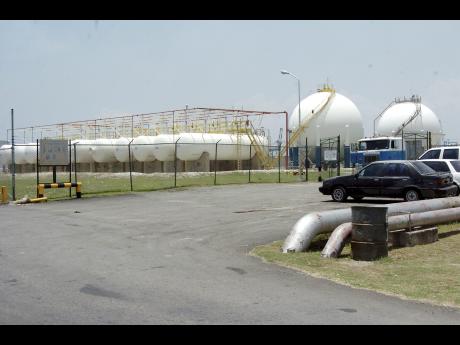Chinese will build and might partially own Petrojam
Jamaica is banking on Chinese capital to transform Petrojam into a more efficient refinery, a deal that could still end up with a third country having a stake in the asset.
For now, Jamaica is vague on what the ownership composition of Petrojam refinery will look like after the expansion project, but it did say Sinohydro would not have a hand in its operation.
Sinohydro Corporation Limited will finance, engineer, develop and construct the refinery upgrade at a cost of about US$1 billion.
The Jamaican and Venezuelan state entities, which currently co-own the Kingston-based refinery, are about to enter negotiations with the Chinese state-owned engineering firm to finalise repayment and other terms.
"To date, the parties have not agreed on any equity assignment to Sinohydro," stated the Ministry of Science, Technology, Energy and Mining in response to a direct query on whether the Chinese firm would be given equity in the refinery in exchange for the investment it is making. The ministry did not deny it was under consideration.
The ownership structure of Petrojam is now 51 per cent for Jamaica, through Petroleum Corporation of Jamaica (PCJ) and 49 per cent for Venezuela, through PDV Caribe SA. In years past, long before the Venezuelan economy descended into crisis, Jamaica had proposed giving over a two per cent stake from its 51 per cent holdings and, therefore, majority control of the refinery to Venezuela in exchange for them bankrolling the expansion project. However, Caracas never followed through on that deal.
Jamaica next turned to China, and got more traction, resulting in a signing agreement in Venezuela on February 15 for the plant upgrade. That signing agreed the creation of a task force of five representatives drawn from both Jamaica and Venezuela, within a month.
"This task force will have responsibility for finalising contractual arrangements with Sinohydro for the project," said the energy ministry, led by Minister Andrew Wheatley.
The timeline for the upgrade and repayment terms for the financing are to be determined during the negotiations. The entire project is expected to last four to five years.
Retrofitting Petrojam
Jamaica wants to retrofit Petrojam to process larger volumes of crude, and more efficiently.
"The parties are now required to enter into contractual negotiations with Sinohydro to mutually agree on the details surrounding not just the financing of the project, but all other particulars relating to the engineering and construction aspects of the refinery upgrade," said The ministry.
"It is anticipated that these discussions will be concluded within the upcoming weeks."
For more than a decade, successive administrations have been trying to modernise and expand the refinery, but funding remained a persistent roadblock.
A partnership agreement was first signed between Kingston and Caracas in mid-2005 under which both would split the cost 50:50 on what was initially meant to be a US$500-million project to expand the refining capacity from 35,000 barrels per day to 50,000 bpd.
Through PDV Caribe, a subsidiary of PDVSA, Caracas did follow through on the minority acquisition of a stake in Petrojam at a cost of US$63.5 million in 2008, but baulked at the expansion programme.
Over time, the cost of the project has doubled. The environmental report done in 2009 pegged it as a US$758-million undertaking, while the deal being negotiated with Sinohydro pushes it even further - to as much as US$1 billion.
"The project will have several phases and will require extensive groundwork including negotiation of financing, preparation and approval of detailed designs and engineering work, as well as negotiations with prospective suppliers and service providers," said the ministry.
"Many of these elements are precursors to the commencement of actual construction work."

